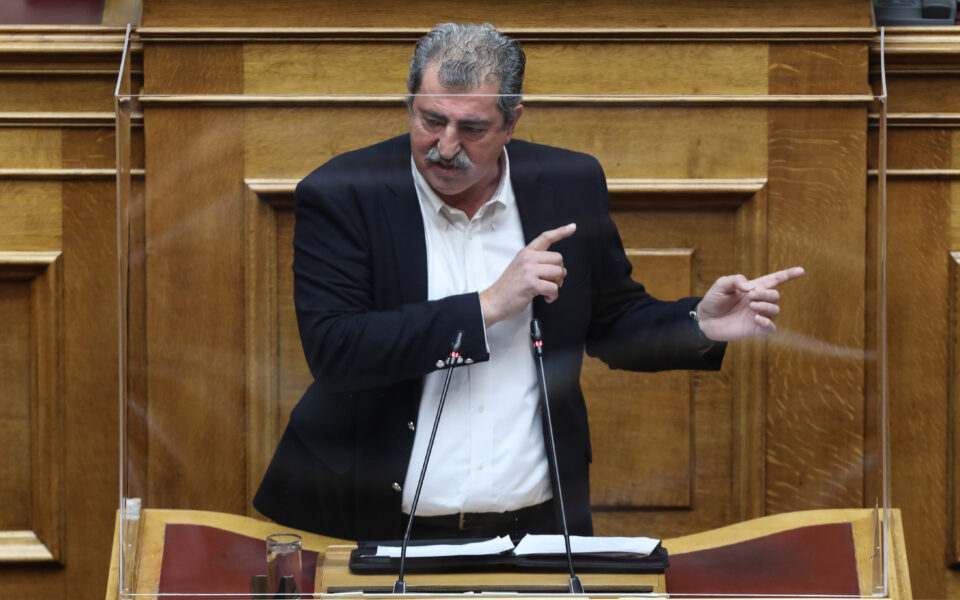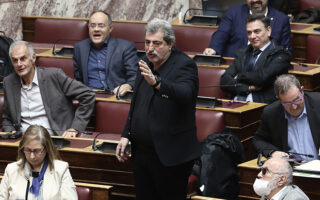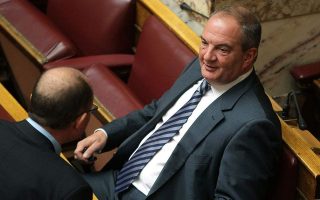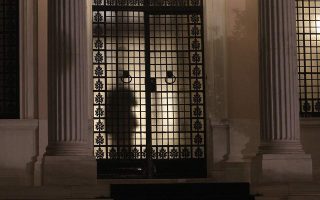Reflexive criminalization

The comments typed by SYRIZA lawmaker Pavlos Polakis last Sunday on his Facebook account at two in the morning after (we imagine) some partying, which targeted journalists and judges whom he claimed represent the “deep state,” were obscene. No democratic citizen with half a brain can dispute that.
Is it despicable, fascist – and whatever else you want – to target people doing their jobs (whether they’re doing it well or not, doesn’t matter) and post their photos as if they’re in a “wanted” list? It is. Is it possible that some dumb kid will take Polakis’ prompt that “if we don’t get rid of them, IT WILL NOT BE DIFFERENT NEXT TIME!!” seriously and do something about it? Everything is possible in this life, but speech cannot be criminalized.
Otherwise we would have to sue every politician because “you never know what is going on in the mind of a crazy supporter.” There were people who targeted the houses of SYRIZA MPs when the Prespes Agreement was approved by Parliament. Kyriakos Mitsotakis, who was then leader of the main opposition, had declared that “it is a difficult, sad day for Greece. The government voted for the harmful Prespes Agreement with an opportunistic majority” (25.01.19). Should he have been prosecuted for the acts of those people? Even if some hooligan had told the court that “I targeted [those houses] because I heard Mr Mitsotakis say that they are harming the country,” the judges would not have consider this statement as a mitigating factor for his actions.
As civil law professor Antonis Karampatzos rightly wrote on his social media accounts, “however abhorrent the controversial statements may be to us, as eminent colleagues have already pointed out, there is no question of a criminal act having been committed in this case (Penal Code 184 or 167), therefore there is no need for the intervention of the Prosecutor’s Office. As much as we don’t like it, this is a case of exercising the constitutionally protected freedom of expression; article 14 […] This can also be seen from the carefully worded announcement of the Union of Judicial Officers of the Council of State, which does not refer to any criminal element of the statements, but rightly focuses on defending liberal and democratic institutions and, above all, the important role of justice in a country guided by the rule of law.”
We must be careful of the almost reflexive invocation of criminal law for matters relating to public speech. We are not only referring to judges but also to journalists, pundits and others who make their living from publishing their views. Its continued criminalization is a mortal danger to all. Because, as the American founder and publisher of pornographic publications, Larry Flynt, had told reporters: “If the First Amendment will protect a scumbag like me, then it will protect all of you. Because I’m the worst.” Vulgar speech is only discredited by constant disparagement by those who know better.





